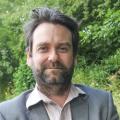
A SENIOR police officer on the night of the Manchester Arena bombing failed to ask "the most critical question" in the aftermath of the blast, a public inquiry heard.
Superintendent Chris Hill, who was one of the "Silver" commanders, took charge of the unarmed response to the attack around midnight on May 22, 2017, 90 minutes after the bombing.
Suicide bomber Salman Abedi murdered 22 bystanders and injured hundreds more in the City Room foyer as they left an Ariana Grande concert at 10.31pm.
But he failed to ask whether the City Room, the scene of the carnage, was a "hot" zone, where only armed police should operate.
The public inquiry has heard of a delayed and sluggish response from Greater Manchester Fire and Rescue Service (GMFRS) and North West Ambulance Service (NWAS) amid confusion about what was going on at the Arena.
Only three paramedics went into the City Room on the night, as the dying and injured were evacuated on crash barriers, noticeboards and tables, the public inquiry into the atrocity has heard.
Police had declared Operation Plato, a planned response to the threat of a marauding terrorist firearms attack, with officers receiving erroneous reports of gunshots.
Part of the Plato response is to designate "hot", "warm" and "cold" zones to assess how safe it is for the emergency personnel to operate in.
This meant no-one should enter a "hot" zone where there could be a gunman, until armed officers had neutralised the threat.
In fact the bombing was not the prelude to a gun attack, but police kept Operation Plato to themselves and did not tell the other 999 services.
The inquiry heard only very few paramedics entered the City Room to help treat the injured and dying and the fire service did not arrive at the scene until two hours after the explosion.
Sir John Saunders, chairman of the inquiry, said the main strategic objective after the attack was saving and preservation of life.
He asked the witness: "Why wasn't it absolutely your first priority when you took over to find out, was there a hot zone? The most critical question is not being asked."
Mr Hill replied: "I have assumed the hot zone is no longer."
The officer said the question of zones was not in his mind at the time and the force control room was extremely busy, but in hindsight he agreed he should have known.
Mr Hill said he was in bed when he heard about the bomb from online news feeds and deployed himself, driving to force HQ - not to the scene as recommended by the GMP major incident plan.
The officer said he was not aware of a critical Her Majesty's Inspectorate of Constabulary report into GMP's plans for a marauding terrorist attack, or the long-standing issue of the force duty officer, the most senior officer on duty at the time of a terror attack, becoming quickly overwhelmed due to having too many responsibilities.
The public inquiry, looking at events before, during and after the attack, was adjourned until Tuesday.



Comments: Our rules
We want our comments to be a lively and valuable part of our community - a place where readers can debate and engage with the most important local issues. The ability to comment on our stories is a privilege, not a right, however, and that privilege may be withdrawn if it is abused or misused.
Please report any comments that break our rules.
Read the rules here